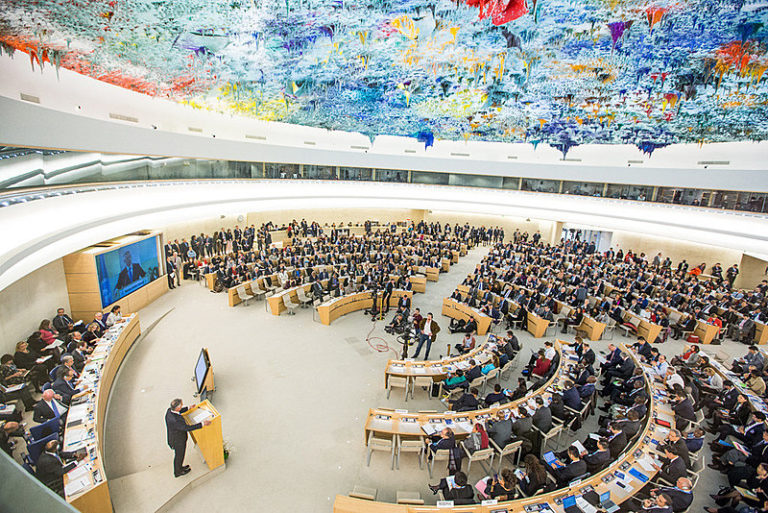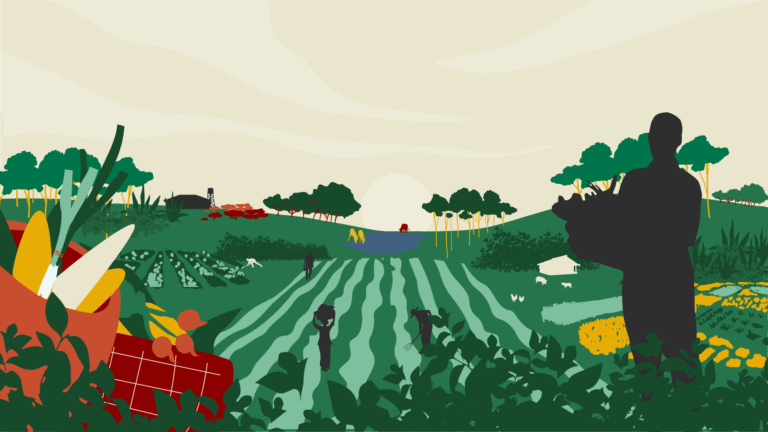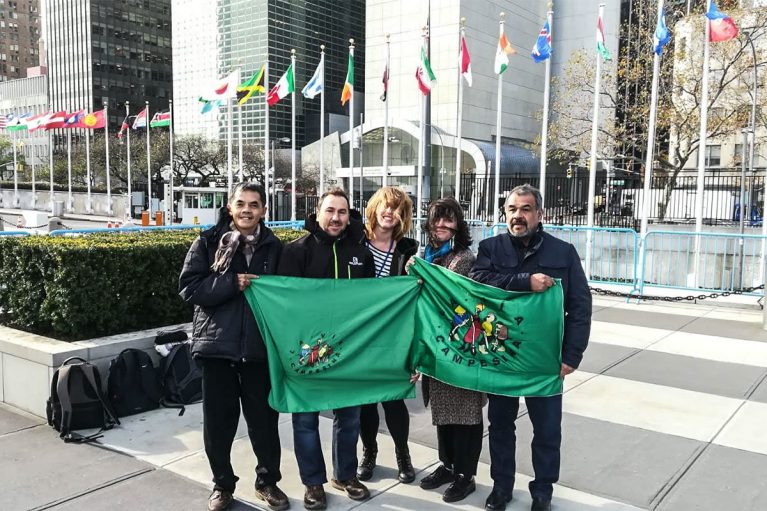Call for input from the Special Rapporteur on the right to food
Call for Input : Concentration of corporate power in global food systems and its implications for the realization of the right to food
All the special procedures of the UN Human Rights Council can published calls for inputs. These calls are addressed to any interested parties to the subject. Civil society organizations and human rights defenders are strongly encouraged to participate.
The current call for inputs from the Special Rapporteur Michael Fakhri, is directly linked to peasants struggles and the rights enshrined in UNDROP. The inputs will be the base material for the next report of the Special Rapporteur to the General Assembly of the United Nations. The report will take them into account to draw conclusion and propose guidelines.
We are reproducing below the call for inputs, you can find the official page here.
Deadline : June 12th, 2025
Purpose: To inform the Special Rapporteur’s upcoming thematic report to the UN General Assembly, October 2025
Background
The Special Rapporteur seeks inputs from both States and civil society to better understand how the concentration of power in the hands of a relatively small number corporations affects food systems, governance, and people’s everyday lives — and to explore transformative alternatives that prioritize human rights, social equity, and ecological sustainability.
Corporate-led industrial food systems have a massive environmental impact and often violate the rights to life, health, water, food and the enjoyment of a safe, clean, healthy and sustainable environment. In many places in the world, they also deprive the people of eating healthy and culturally appropriate food, in line with dietary habits and ancestry traditions.
Objectives
To inform the Special Rapporteur’s upcoming thematic report to the UN General Assembly, October 2025
Key questions and types of input/comments sought
Submission of inputs
The Special Rapporteur on the right to food invites States, international organizations, national human rights institutions, civil society organizations, communities, business enterprises, academia, networks, and other relevant stakeholders to share inputs to address the topics below. He encourages the submission of specific data, statistics, good practices, and further materials to enrich the report.
Please email your responses to the questionnaire by 12 June 2025 in Word format (subject: Inputs for Food Systems report) to [email protected]. Kindly limit your submissions to a maximum of 2,500 words (5 pages), and if necessary, add links to relevant documents or attached annexes. Due to a limited capacity for translation, we request that your inputs be submitted in English, French, or Spanish.
Unless otherwise specified, the input will be published on the website of the Special Rapporteur. If you would NOT like your written input or any other information to be published on the website of the Special Rapporteur, please explicitly indicate this in your input. While we encourage submissions on general situations, in view of consent and privacy issues, contributions containing names of alleged victims will be considered but not published online.
Please provide your inputs to the following questions:
Questions for Civil Society Organisations (CSOs)
- How does the concentration of power in the in the hands of a relatively small number of corporations affect food sovereignty and the right to food in your country or region? Please, if relevant, share examples of how corporate-led food systems have negatively impacted the human rights of communities, workers, small-scale farmers and vulnerable groups in your country/region.
- What alternatives to corporate-controlled food systems are you promoting or supporting (e.g., agroecology, food cooperatives, community-supported agriculture)?
- What barriers or threats do these alternative systems face from dominant corporate actors or state policies?
- What kind of legislation is needed in your country to limit the growing corporate concentration and power in food systems and allowing to hold corporations accountable for human rights violations?
- Please share any experiences you have with lawsuits against corporations for their human rights violations in your food system.
- Please share your experiences within a social and solidarity economy?
- Have you experienced or observed forms of ‘controlled participation’ where CSOs were invited to join a process in ways that undermined autonomy? If yes, please describe.
- How are you navigating the shrinking political space for food sovereignty within international forums like the FAO or the CFS?
Questions for Businesses
- Are you a small/medium enterprise (SME) or a transnational corporation?
- What markets do you work in? What would make those markets more fair and stable?
- How do you incorporate human rights obligations into your business?
- Please describe any human rights due diligence process your company has adopted to respect the right to food throughout its activities. In particular, please provide information on positive measures taken to prevent and address negative human rights impacts in food systems, including as they relate to supply chains, labour practices, Indigenous People’s rights, and land use.
- Please provide information on existing measures to provide effective access to remedy for victims of abuses of their human right to food that your company may have caused or contributed to through its operations.
Next Steps
Input/comments may be sent by e-mail. They must be received by 12 June 2025 .
Email address: [email protected]
Email subject line: Submission for the call for input HRC-SR-FOOD
Word/Page limit:
2500 words / 5 pages
Accepted file formats:
Word, PDF
Accepted Languages:
English, French, Spanish, Arabic







